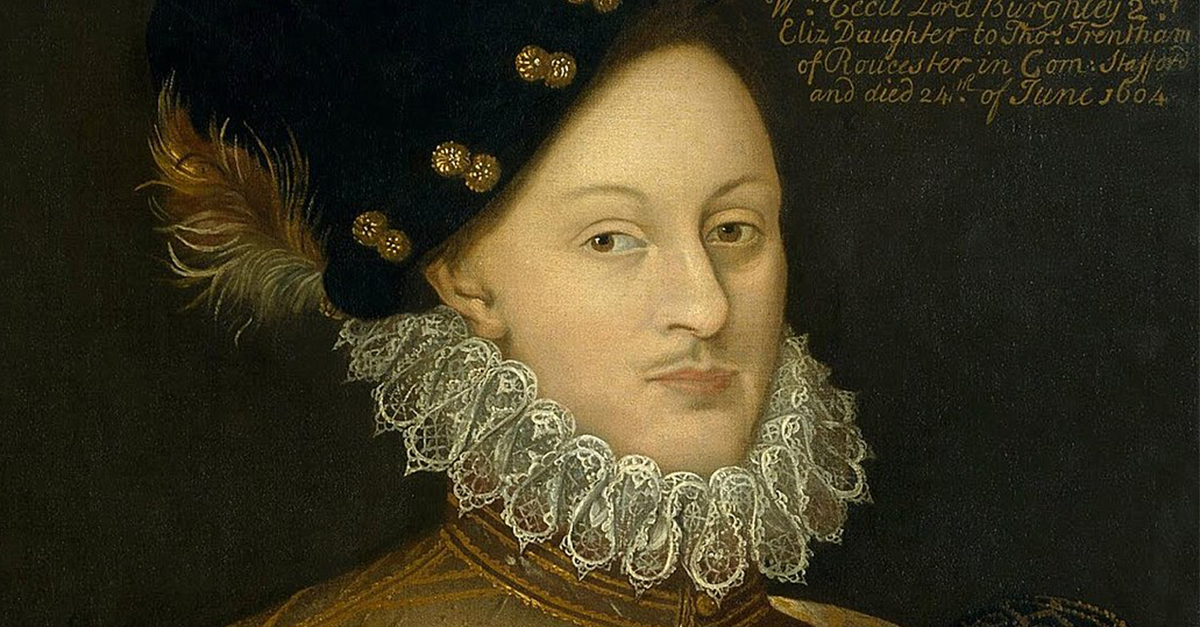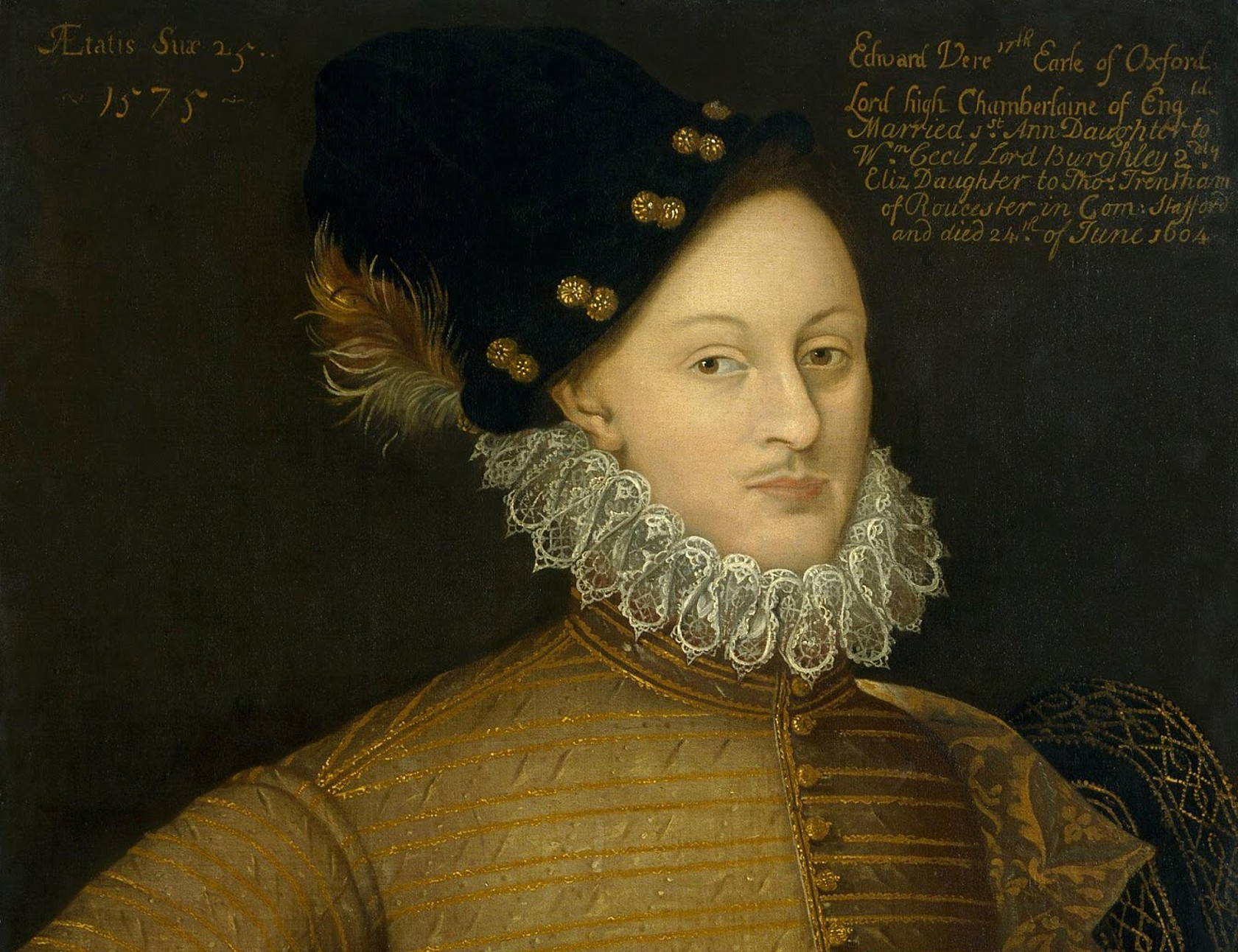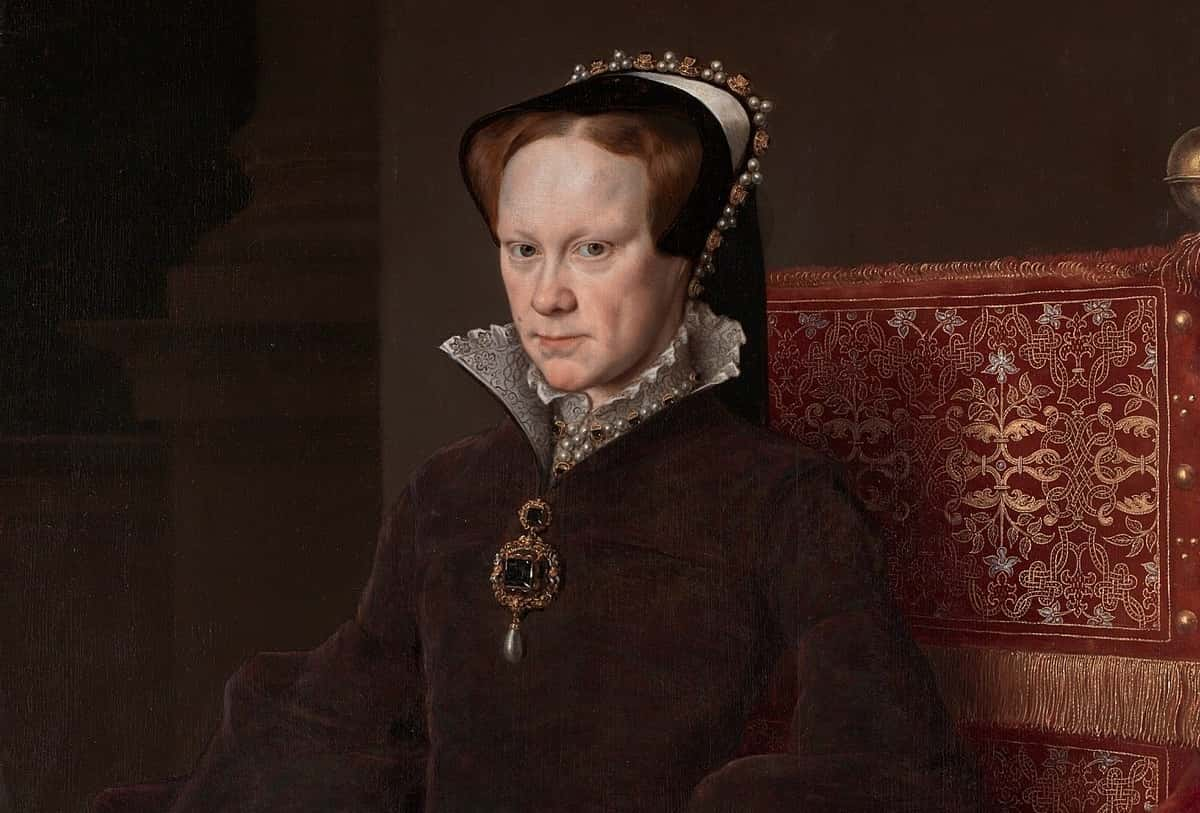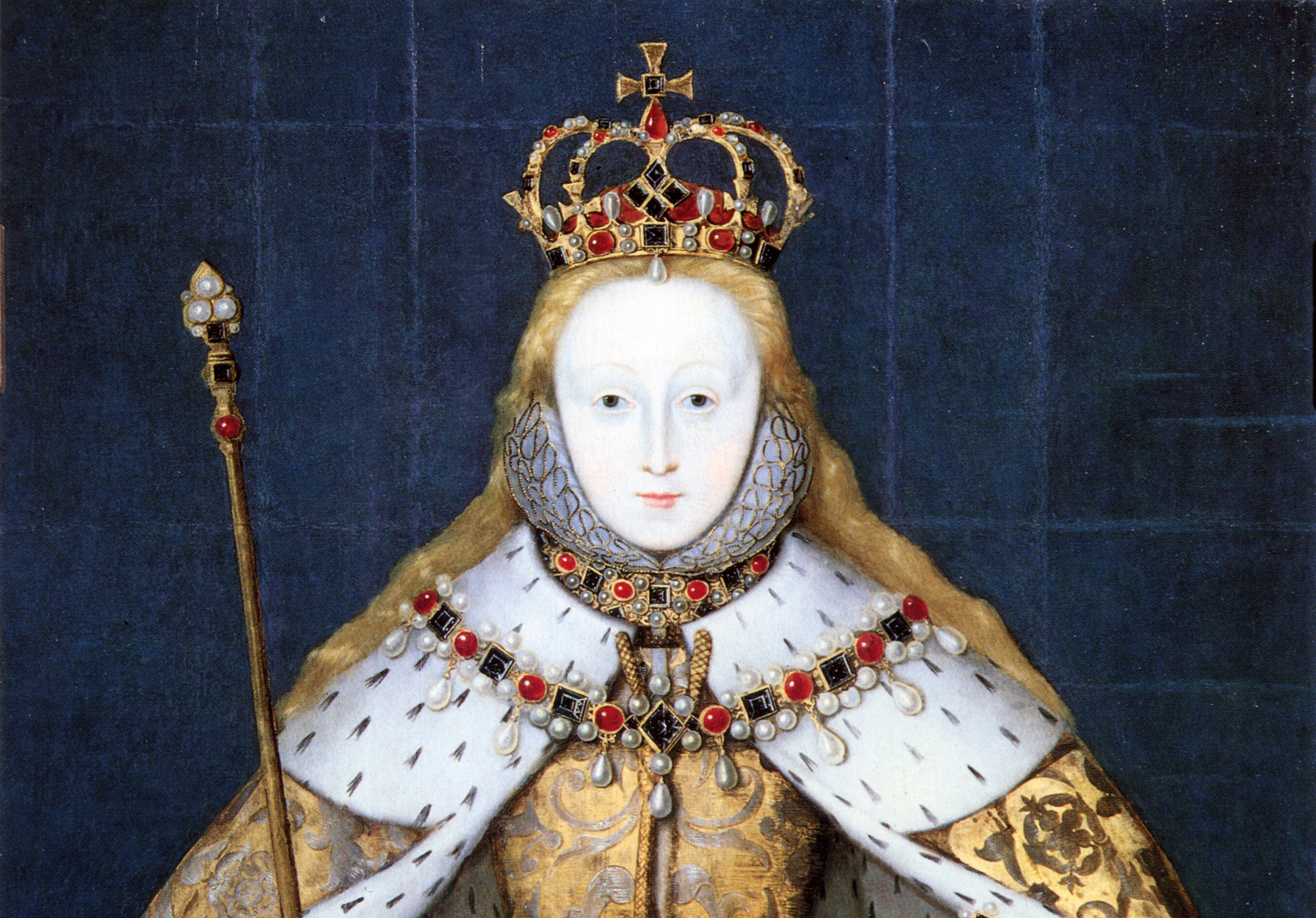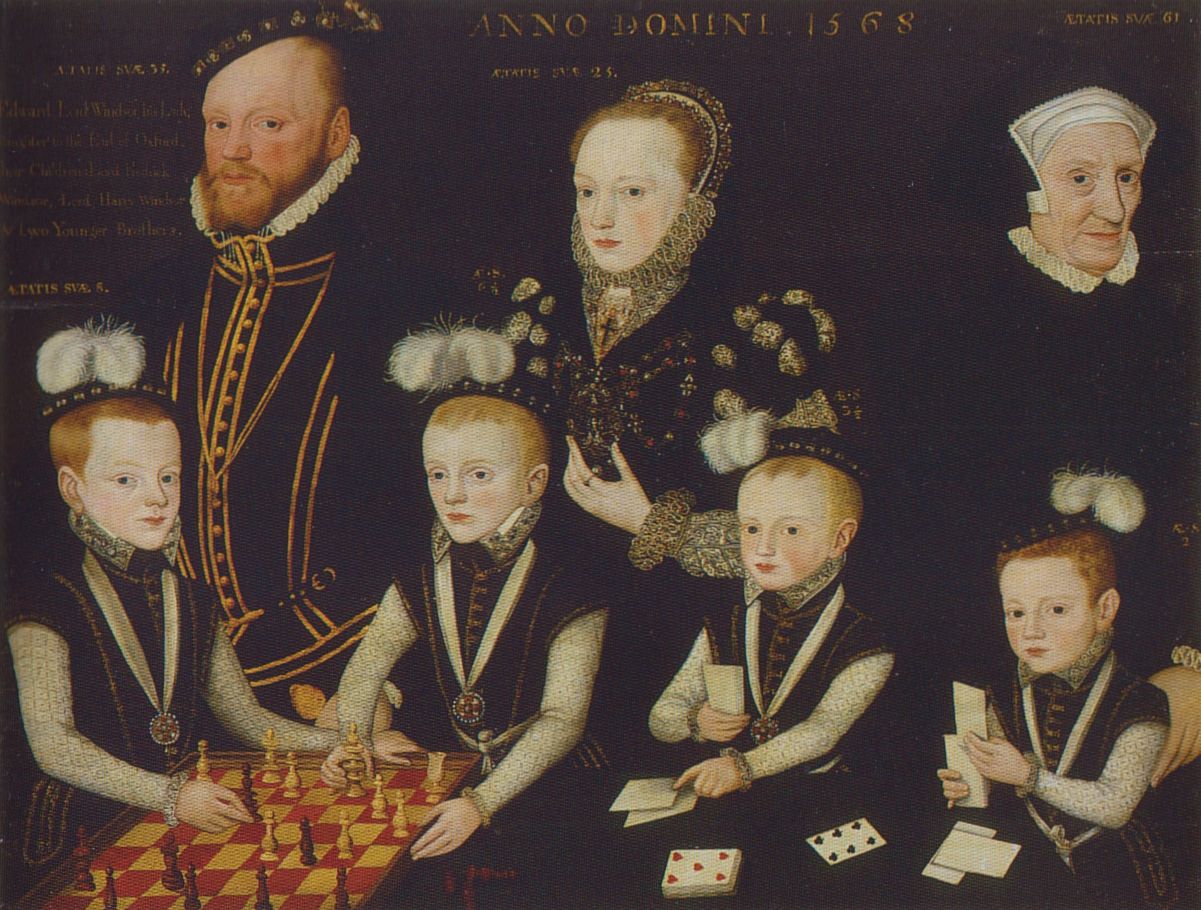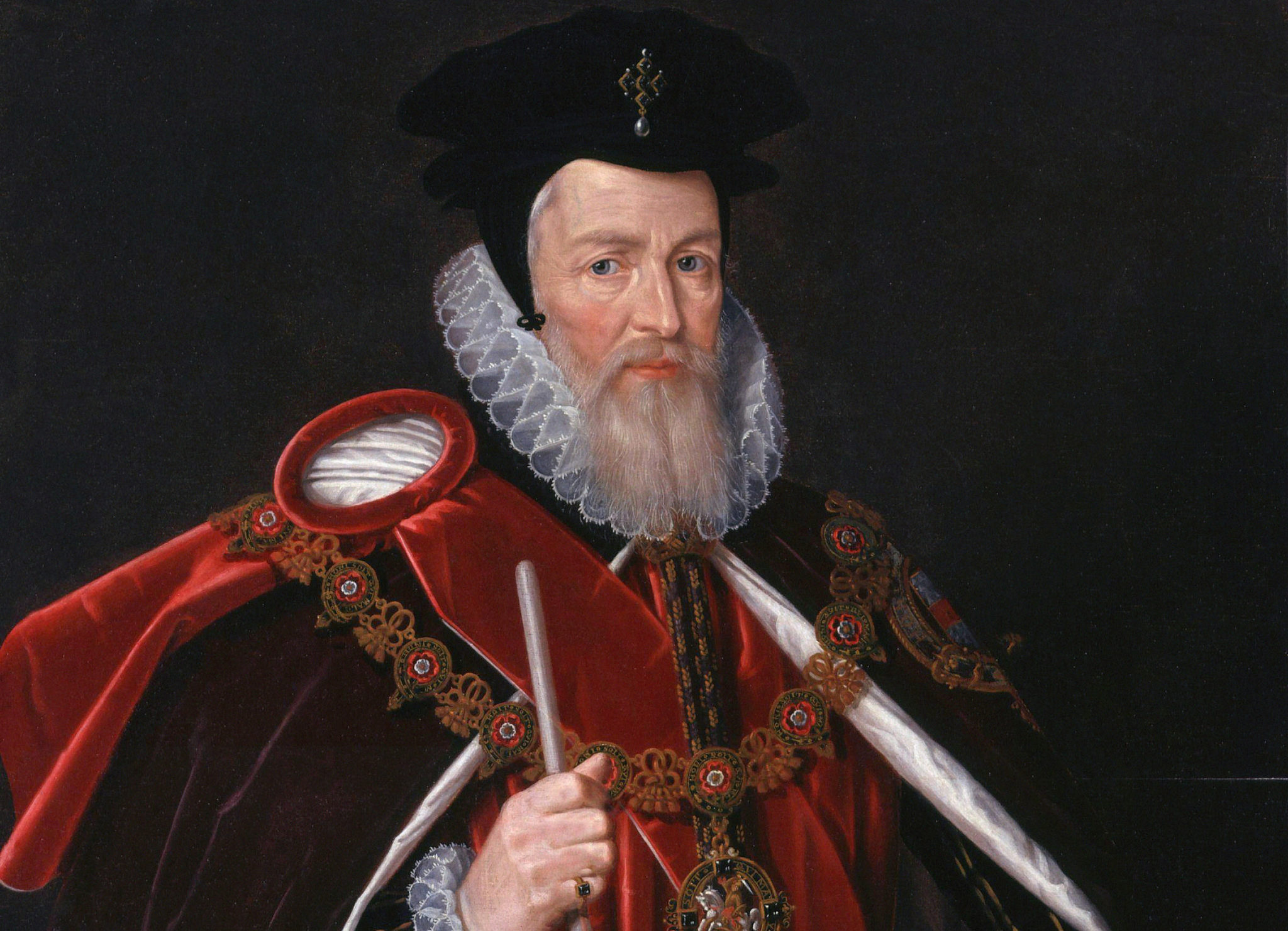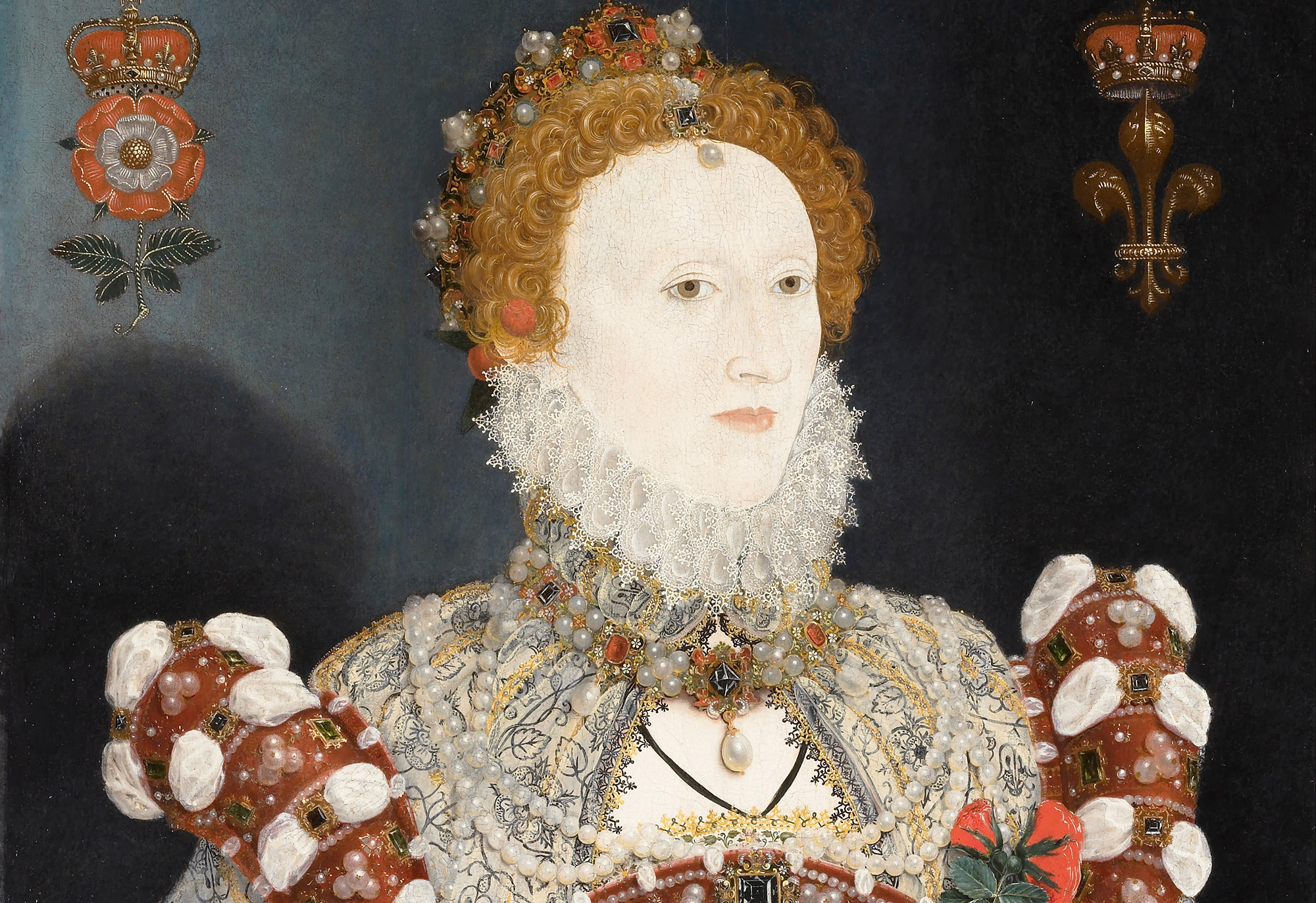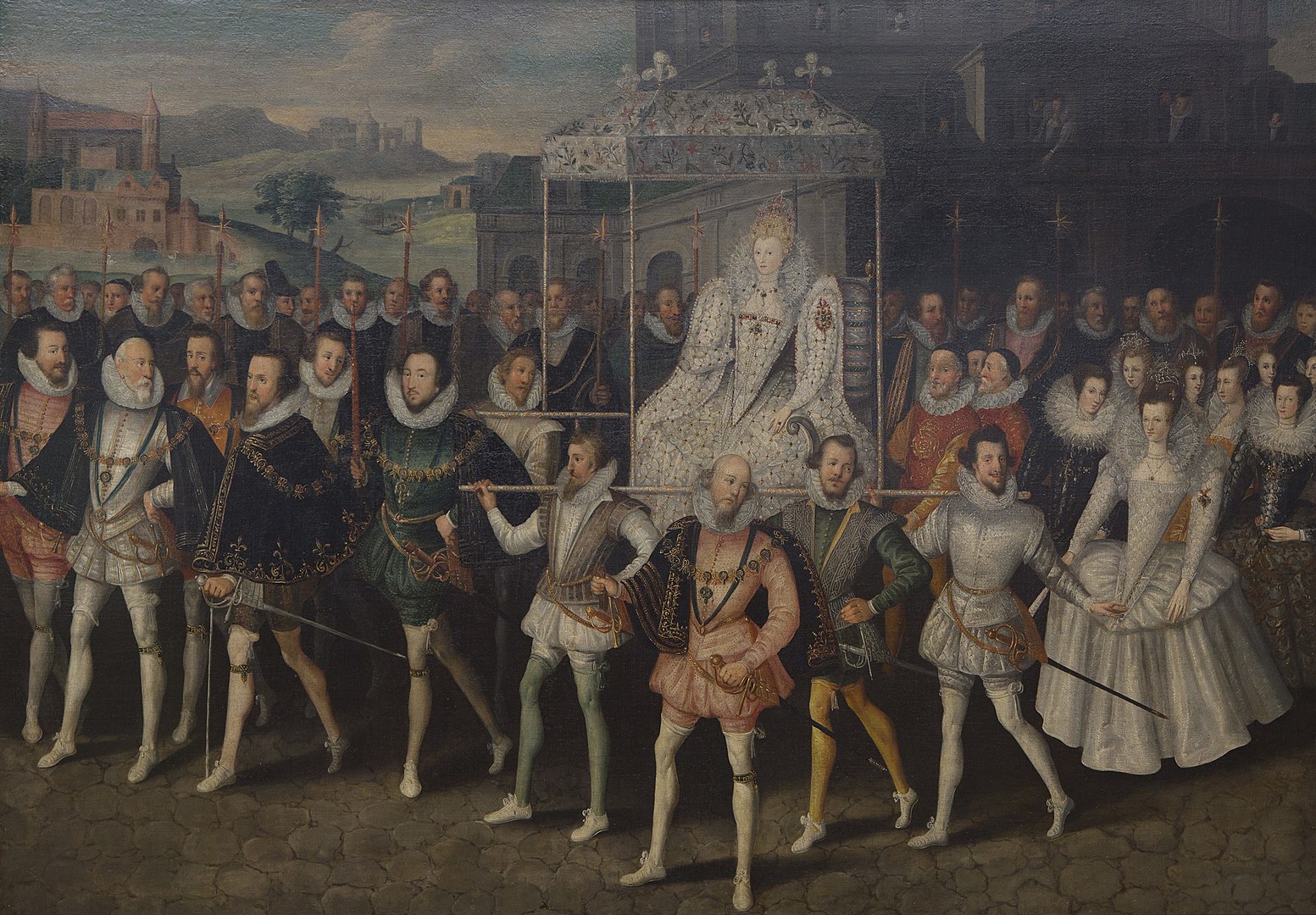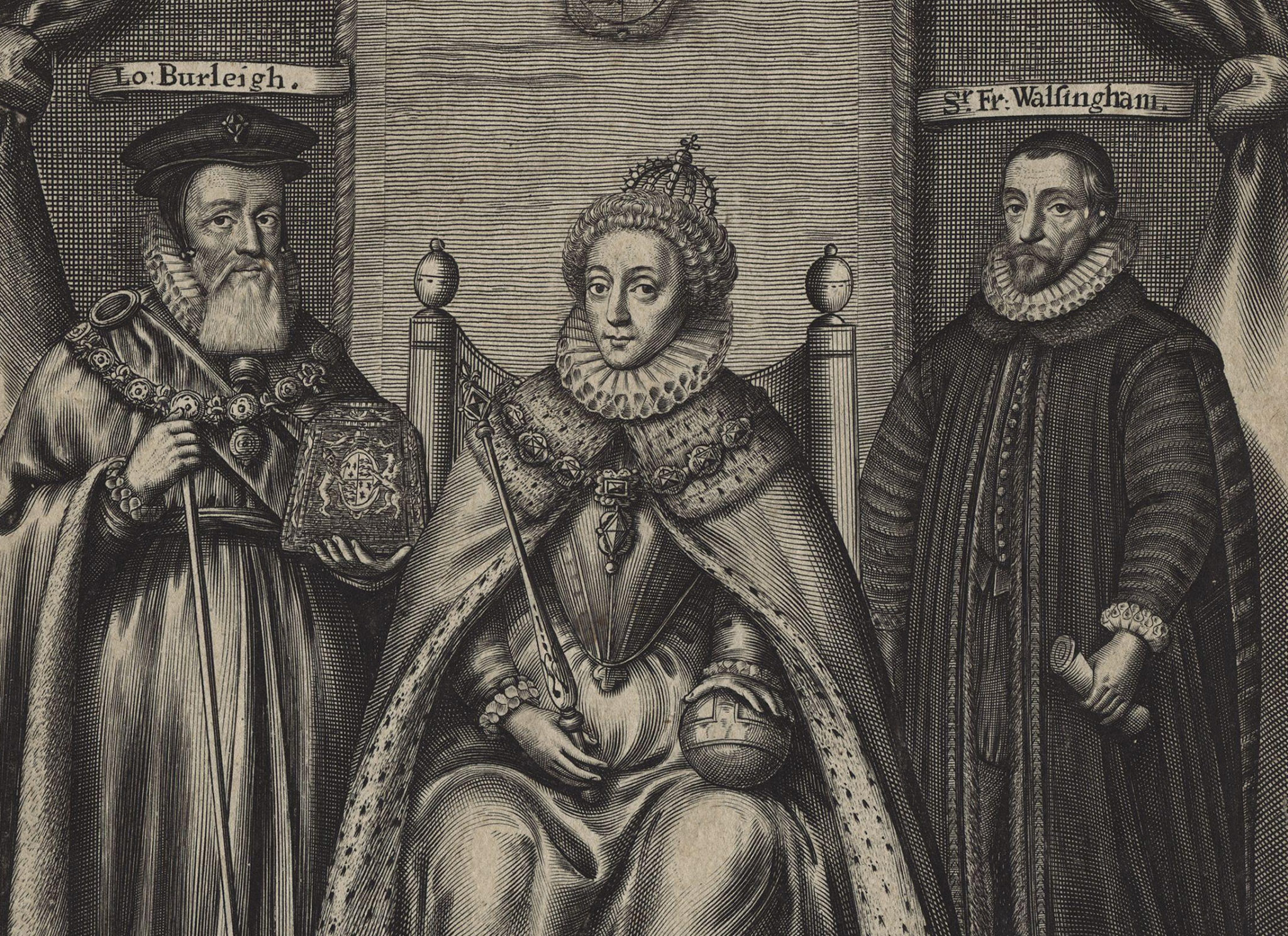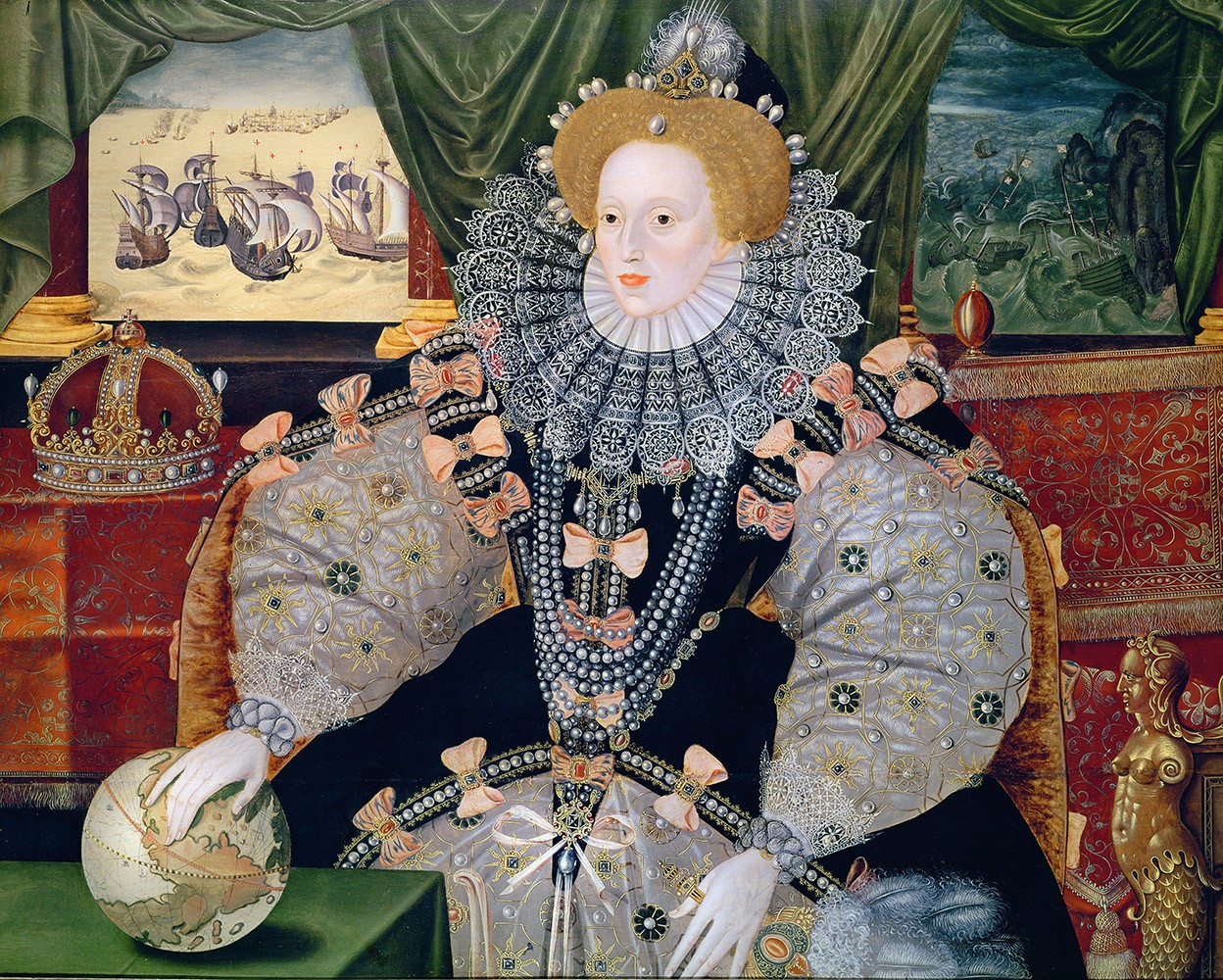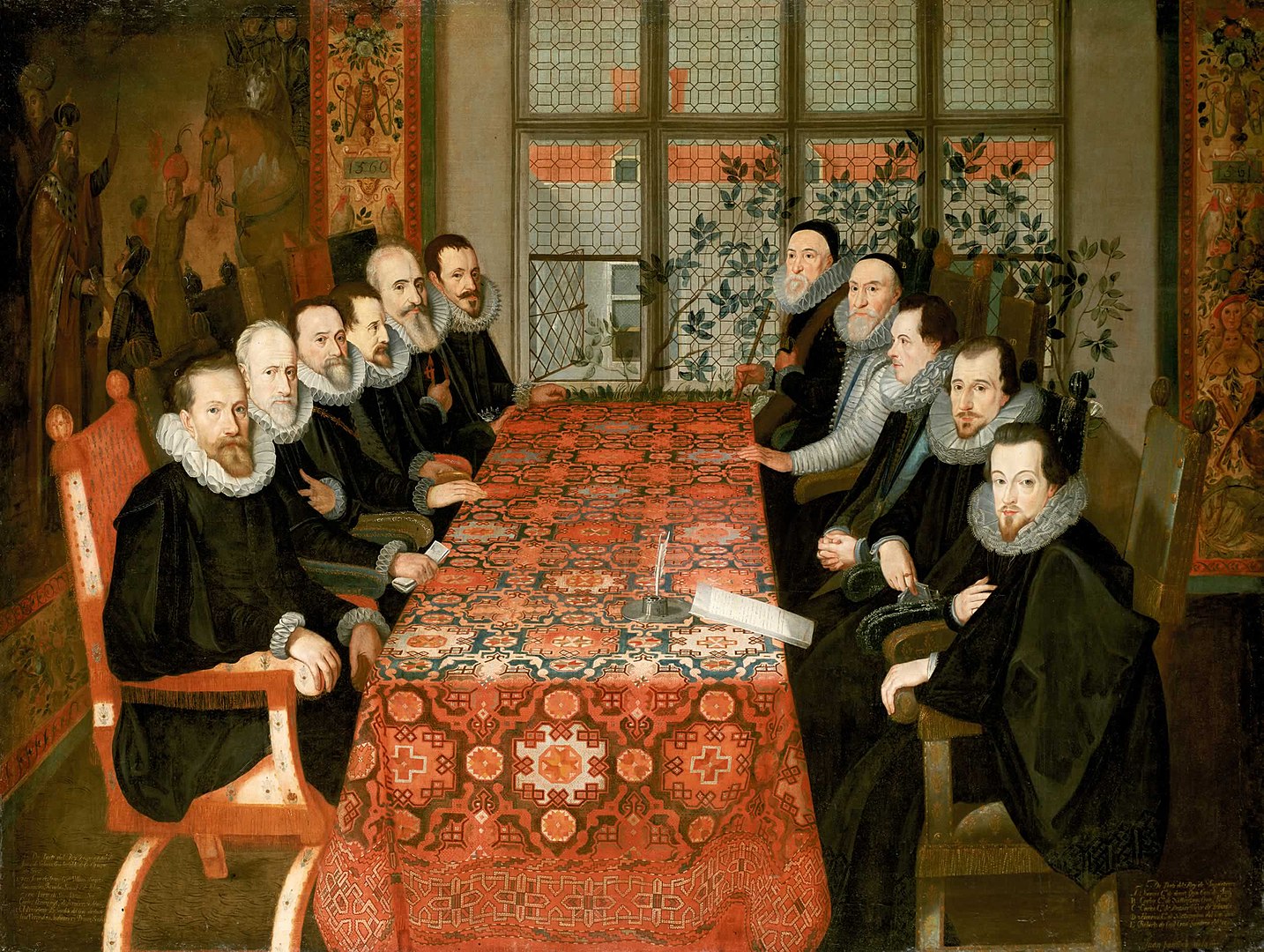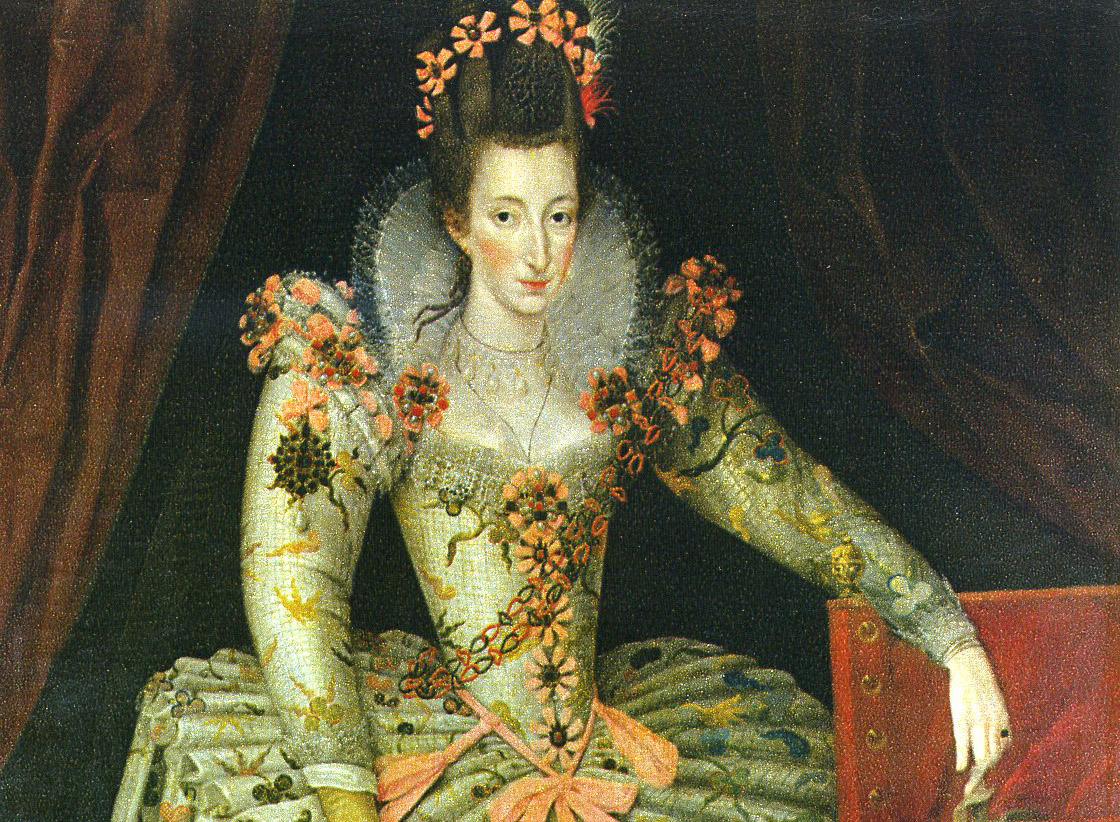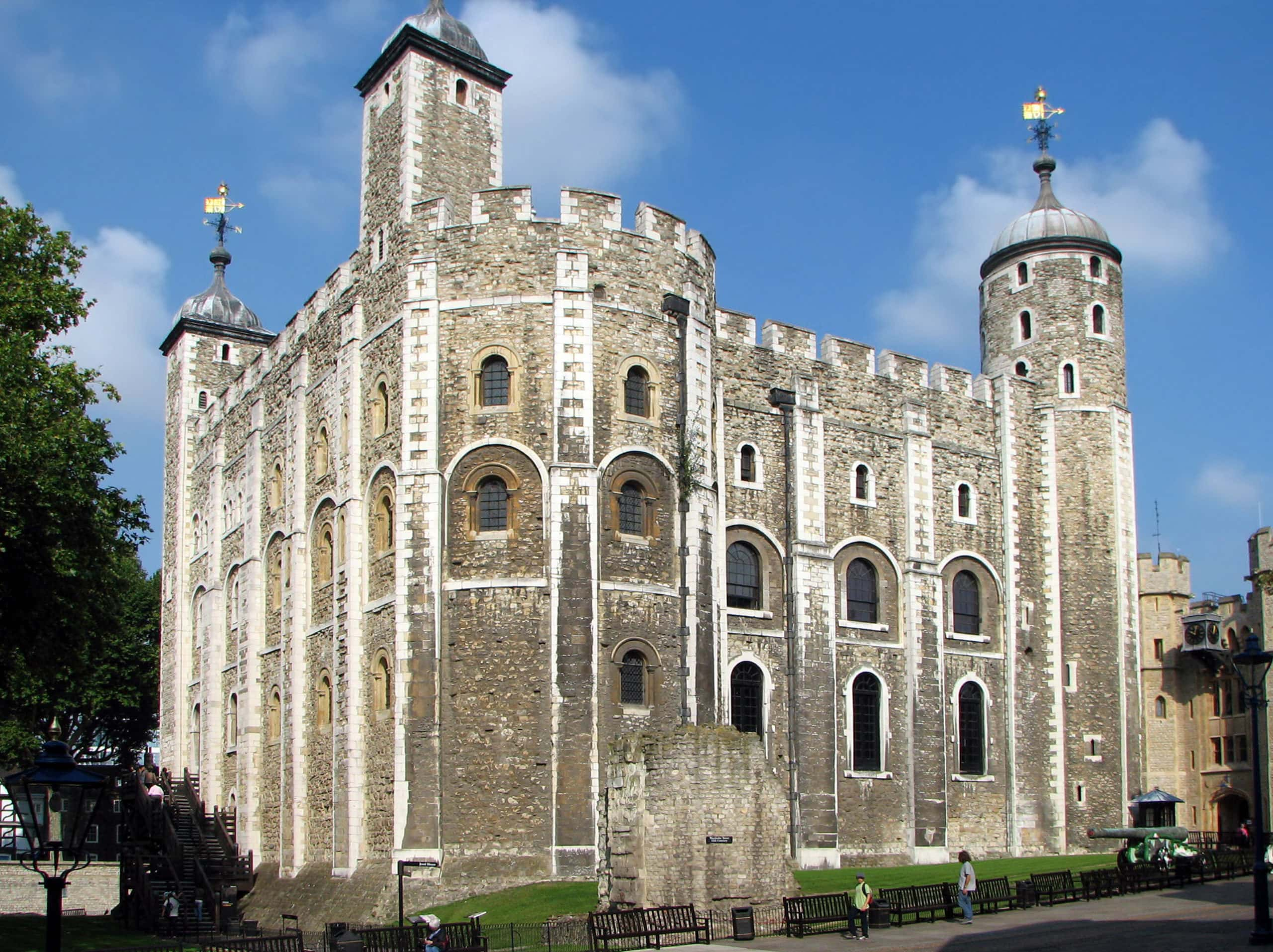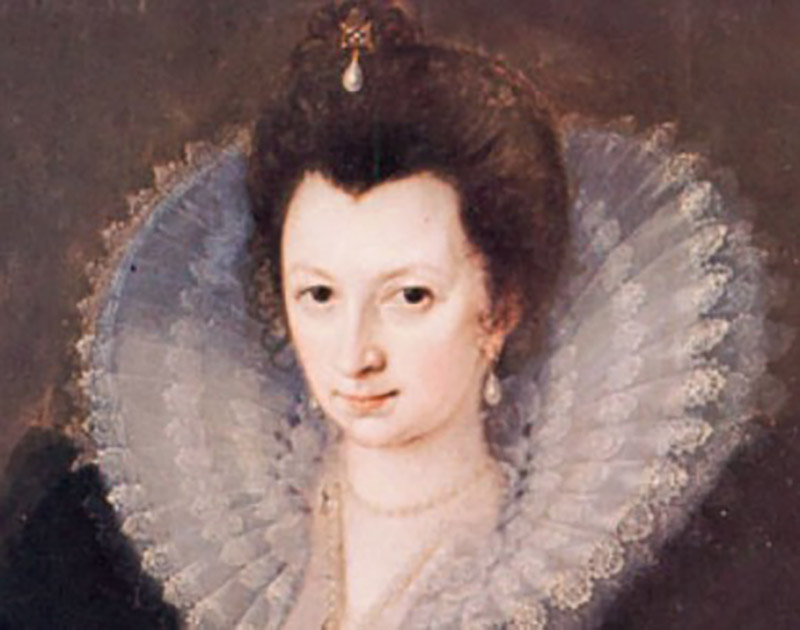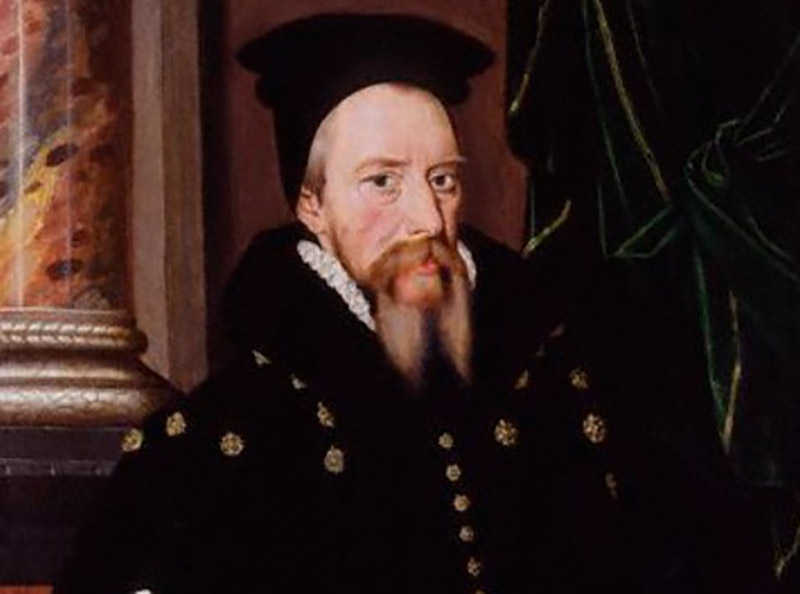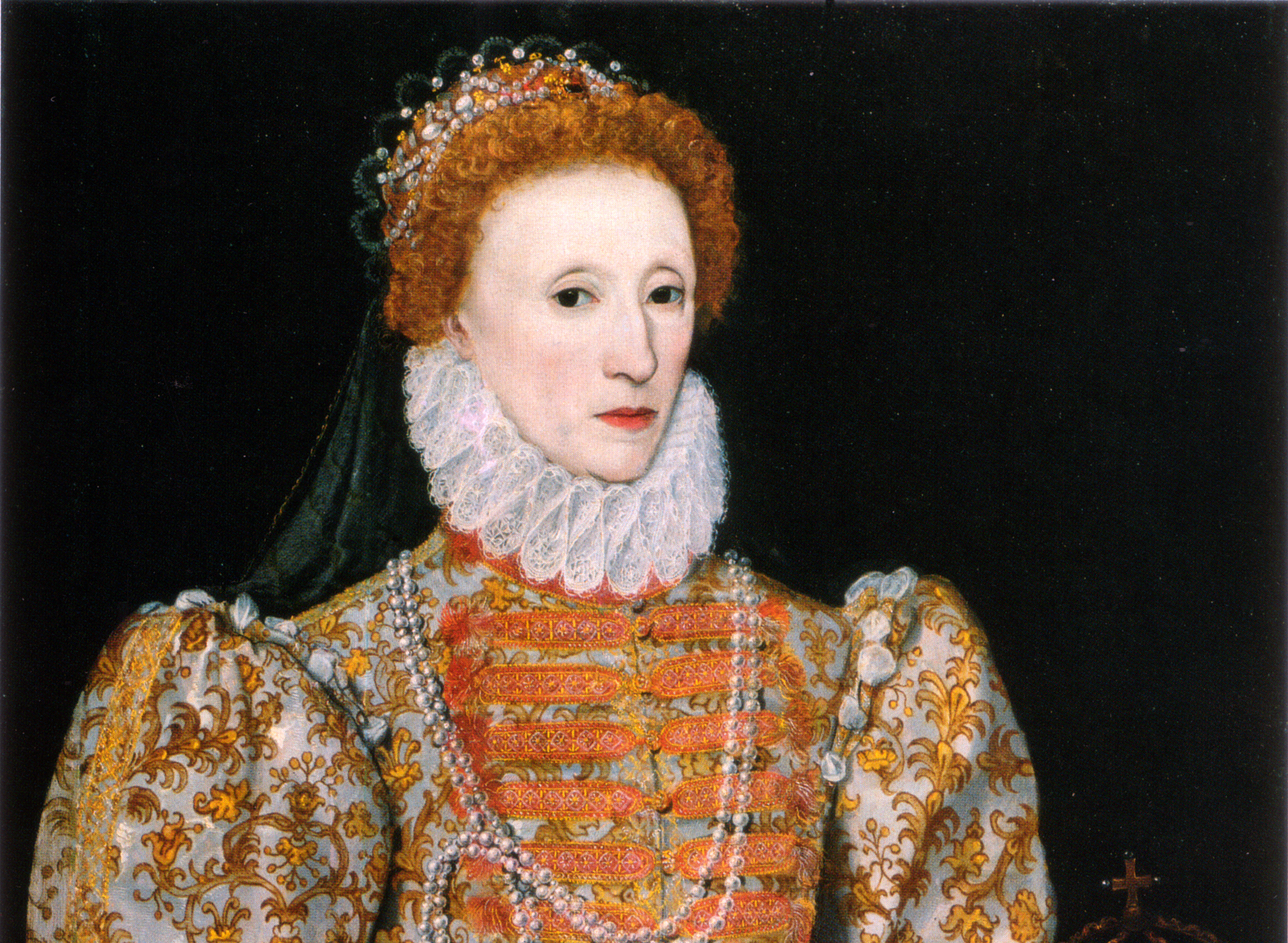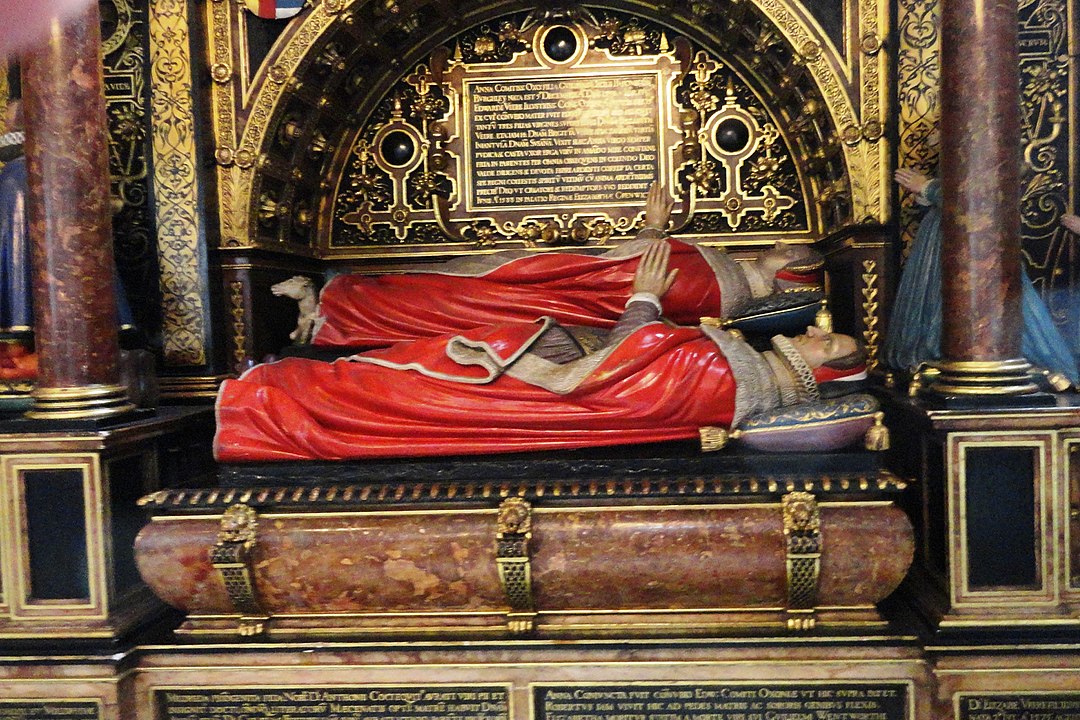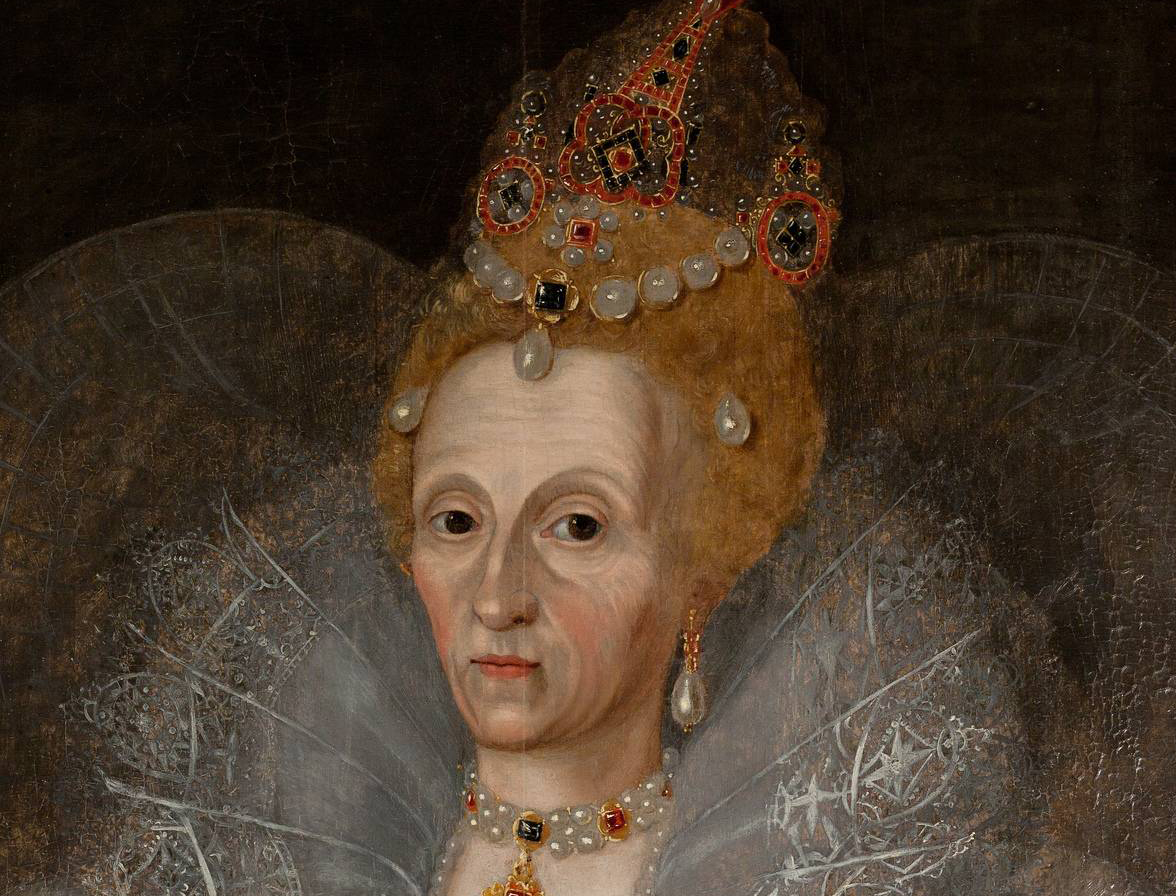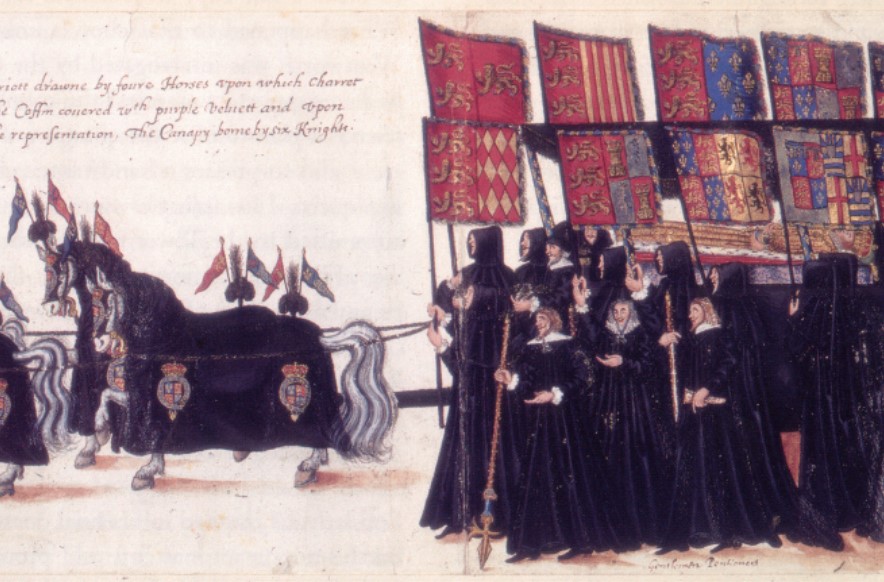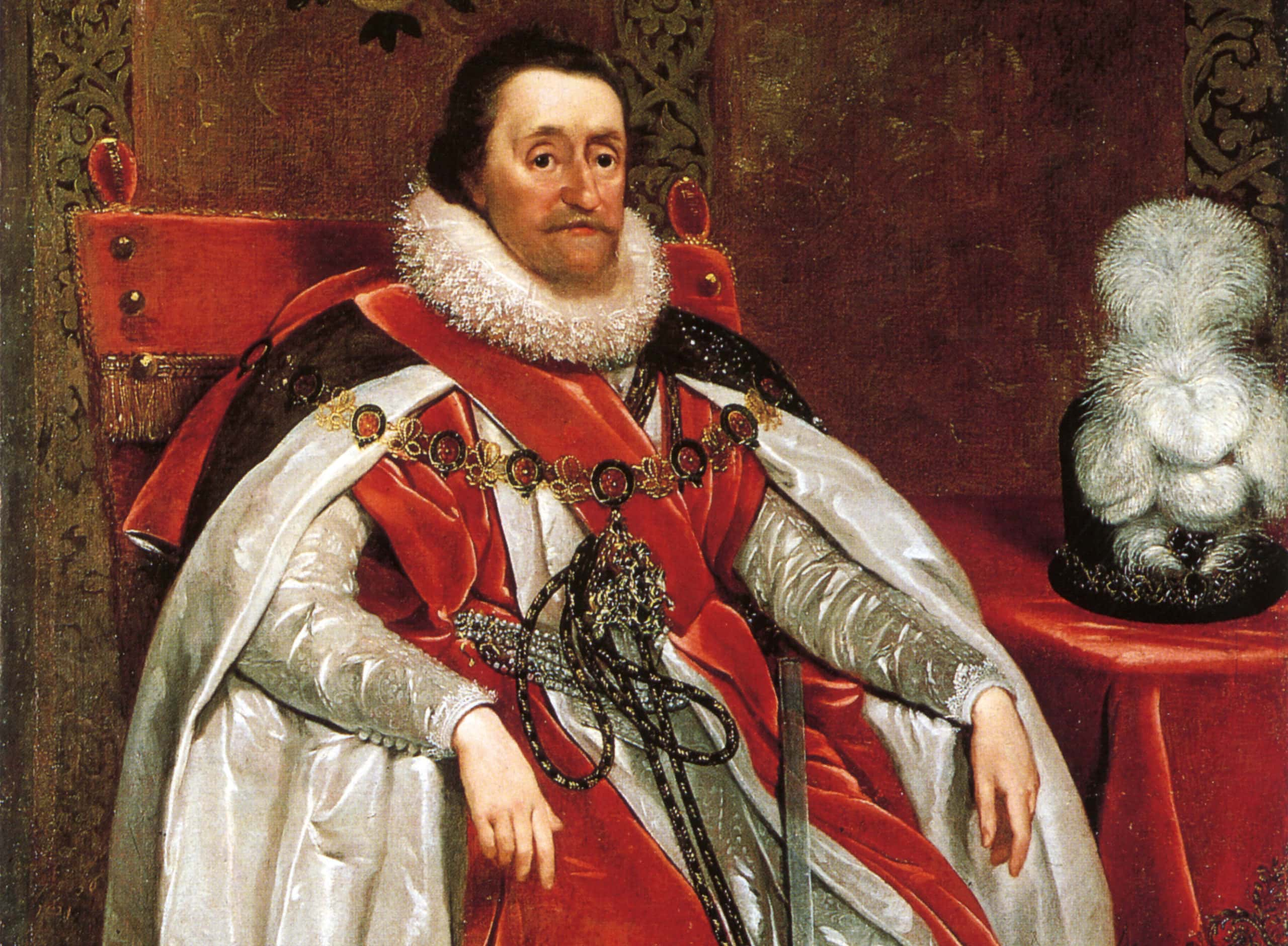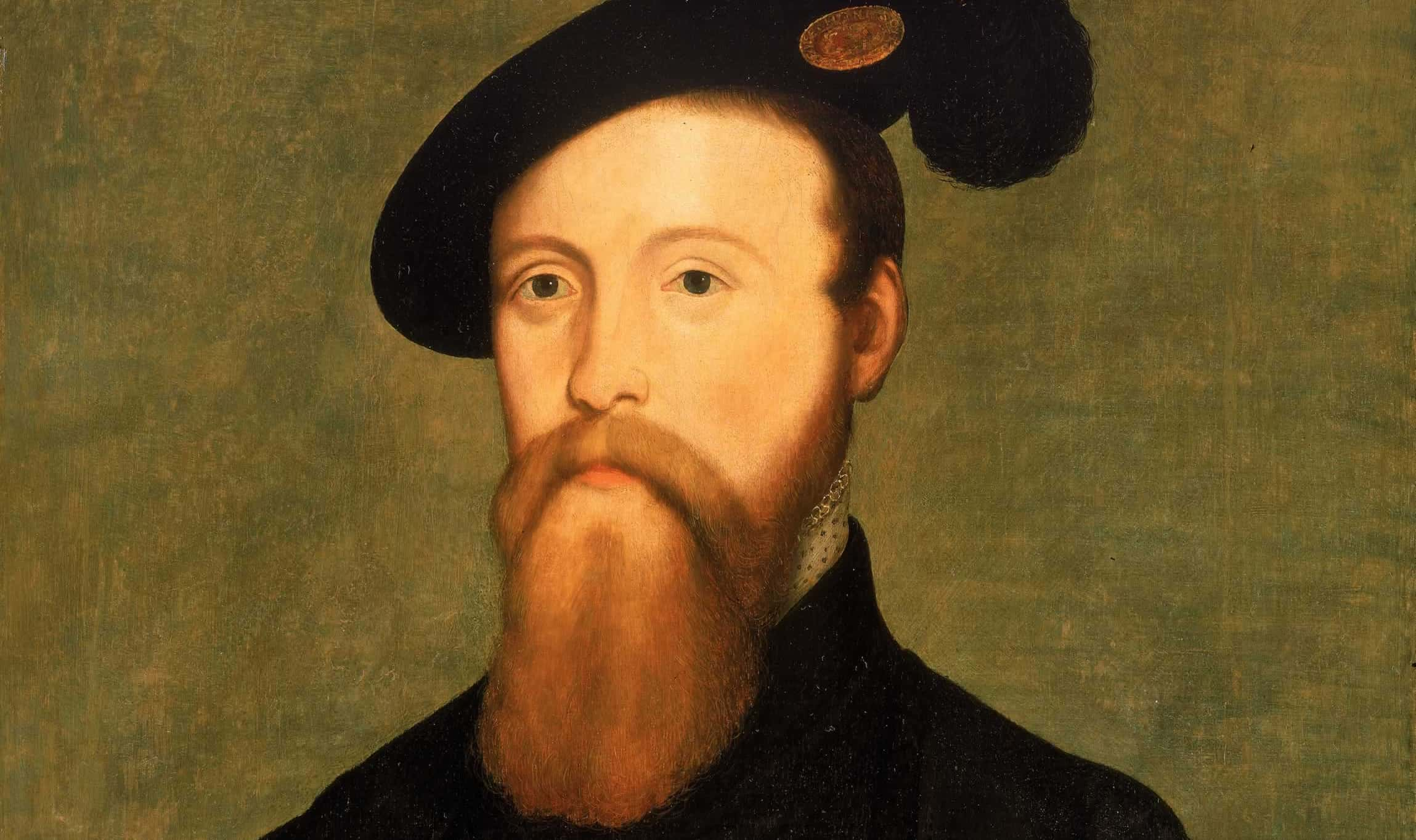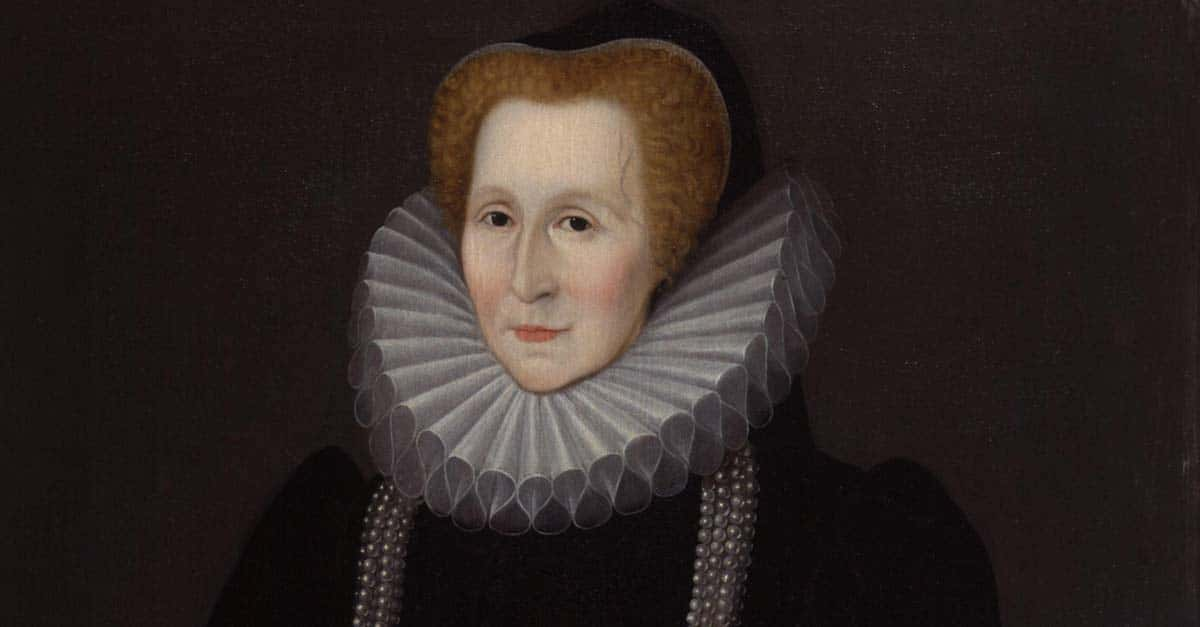Some people believe that Edward de Vere was Queen Elizabeth I’s illegitimate son. Or her lover. Others speculate that he was the real author behind Shakespeare’s works. Well, if you can believe it, those rumors are actually the least interesting things about him. After all, who else has an entire Wikipedia section dedicated to “Quarrels, plots, and scandals?” No one did controversy and intrigue quite like Edward de Vere, 17th Earl of Oxford—and here’s the proof.
Edward De Vere Facts
1. He Was Already At The Center Of A Power Struggle
Edward de Vere was born in 1550 to John de Vere, the 16th Earl of Oxford—putting him right at the center of some serious historical drama. Henry VIII’s teenaged son, Edward VI, had recently become king—and there were a whole lot of power-hungry courtiers buzzing around him.
So, what better way to suck up to the boy-king than name your son after him? Edward de Vere may have been a pawn in his father’s game—but it wouldn’t take long for him to become the mastermind.
2. Their Reputation Was Bloody
It’s no wonder that Edward de Vere turned out so cold and calculating. After all, look at the example his father set. While John hadn’t really made a name for himself during Henry VIII’s reign, he came into his own when Bloody Mary took the throne—for all the wrong reasons. He was one of the chief enforcers of Mary’s campaign against protestants and helped her prosecute and execute at least 16 people.
John built a disturbing reputation for their family—one that Edward would certainly continue.
3. He Lost His Father
When Edward de Vere was just 12 years old, his father died. A tragedy, sure—but it also complicated things for young Edward. He inherited his father’s titles and land, and that meant he was far too powerful to just be out there living life like a regular kid. He became a ward of the recently crowned Elizabeth I—and thrust right into the middle of court drama.
4. He Already Had Enemies
De Vere, now the 17th Earl of Oxford, was clearly being groomed for not only his father’s hefty salary, but also to take on some seriously powerful positions. Oxford’s older sister from his father’s first marriage saw what he had—and came up with a vicious plan. She went to the ecclesiastical court and claimed that Oxford’s parents’ marriage was illegitimate.
Luckily for him, he was already basically untouchable as a ward of the court. But that half-sister wasn’t the only one to come out of the woodwork.

History's most fascinating stories and darkest secrets, delivered to your inbox daily.
5. Everyone Wanted A Piece Of Him
After Oxford’s mother remarried, she wrote to his guardian, arguing that she should be put in control of his finances in order to “protect” them for when he came of age. They ignored her request. Like his namesake, Edward seemed like an easy target for the power-hungry—but unlike Edward VI, the Earl of Oxford grew both a backbone and a knack for playing the game of thrones.
One thing he never learned, though, was to stay out of trouble.
6. He Killed Someone
Edward de Vere was just 17 when he faced his first major scandal—and it was a truly disturbing one. While fencing with an undercook from his guardian’s household, de Vere fatally wounded the young man. But the incident raised a question—was it an accident, or something more sinister?
 Anonymous (2011), Columbia Pictures
Anonymous (2011), Columbia Pictures
7. He Had Friends On The Inside
The next day, a coroner’s inquest attempted to find an answer to that very question. They gathered a jury to look over the evidence—but among them lurked some seriously biased parties. Not only was Oxford’s servant there, but also one of his guardian’s proteges. Regardless of the potential impartiality, the proceedings went on—but the drama didn’t stop there.
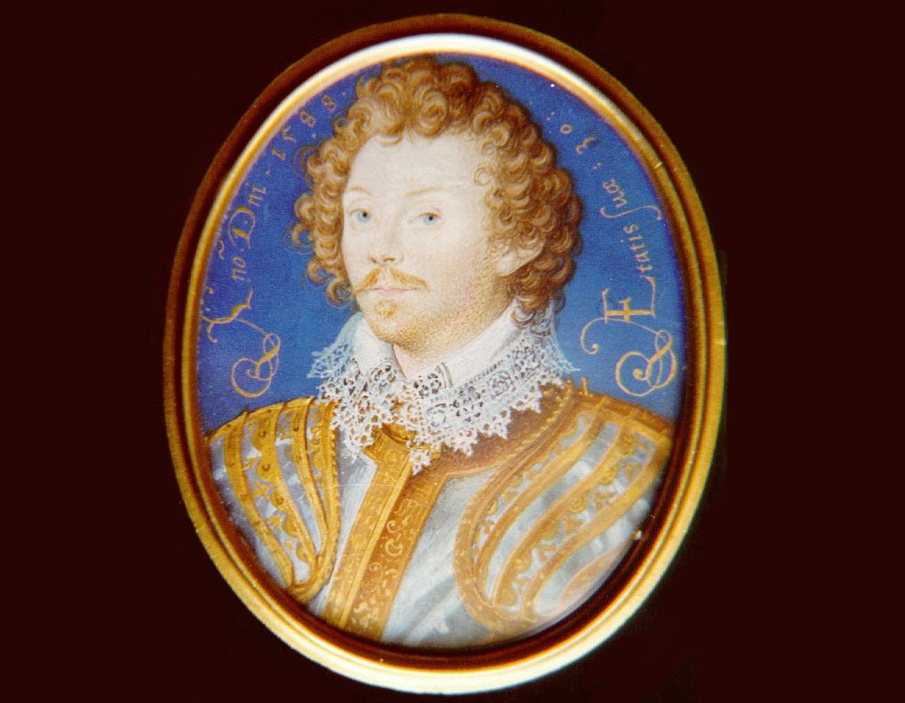 Flickr, Ann Longmore-Etheridge
Flickr, Ann Longmore-Etheridge
8. He Walked Away Scot-Free
After deliberating, the jury made their decision—one as shocking as it was unusual. They came to the conclusion that Thomas Bricknell, the man with whom Oxford had been fencing, had not only been inebriated during the match, but that his fatal wound was an attempt to take his own life. It was an unexpected decision—especially considering that Sir William Cecil, Oxford’s guardian, had encouraged the jury to find the cause toward a self-defense ruling.
But sadly, the ordeal wasn’t over yet.
9. He Left A Wake Of Destruction
As a result of the ruling of suicide, Bricknell could not be buried on church grounds, and the authorities seized all of his possessions. From there, the tragedy only deepened. Bricknell had left behind a pregnant wife, who now had nothing. Soon after, she gave birth, but the child was stillborn.
Thus, what began as a simple fencing match came to a disturbing conclusion—while the Earl of Oxford walked away scot-free. It may have been the first time, but it certainly wasn’t the last.
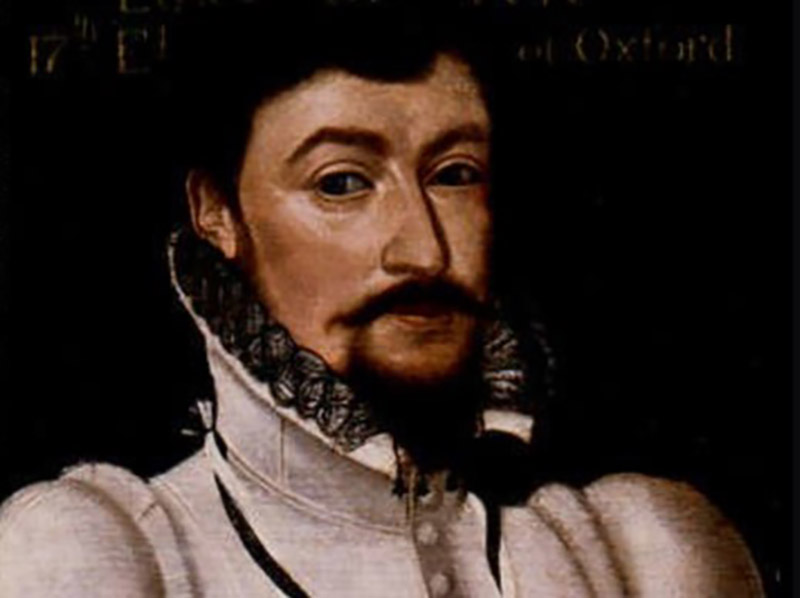 Flickr, Ann Longmore-Etheridge
Flickr, Ann Longmore-Etheridge
10. He Put His Money Where His Mouth Was
Edward de Vere may have been impulsive, but his dares often paid off—and it was this sort of confidence that started to bear fruit when he became an adult. When it came time for him to repay Queen Elizabeth I the debt accrued during his years as a ward, he made her an offer she couldn’t refuse. Oxford said he’d pay on time or pay her double what he owed.
This managed to impress the queen. Before long, he was a favorite in her court—and enjoying the perks that came with it.

History's most fascinating stories and darkest secrets, delivered to your inbox daily.
11. He Went Against His Late Father’s Wishes
Before he’d passed on, Oxford’s father had arranged his potential marriage to one of the two daughters of the 3rd Earl of Huntington. However, by the time he reached adulthood, there was little reason for him to stick to the plan. Instead, when it came time to pick a future wife, Oxford’s eyes wandered…but not very far. He actually stuck quite close to home.
 Anonymous (2011), Columbia Pictures
Anonymous (2011), Columbia Pictures
12. He Picked His Wife Carefully
As a budding court favorite, the Earl of Oxford could have had his pick of eligible bachelorettes in the court—but instead, he made a controversial choice. Her name was Anne and she was his guardian Sir William Cecil’s 14-year-old daughter. Not only did Cecil have plans to marry her to another man, but he also wasn’t a huge fan of the 7-year age difference.
Ultimately, though, it wasn’t his choice—it was for Elizabeth I to decide. She approved the union, and when Anne turned 15, Oxford married her. But why had he been so determined to wed her, of all people?
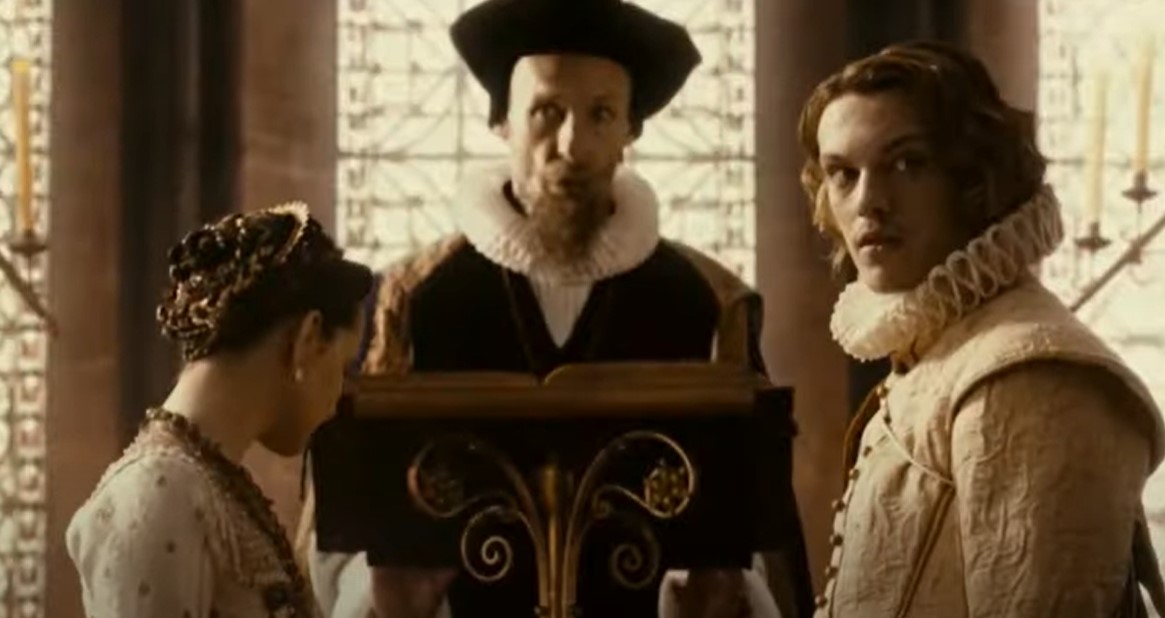 Anonymous (2011), Columbia Pictures
Anonymous (2011), Columbia Pictures
13. He Wasn’t In It For Love
Sir William Cecil had been a great guardian to the Earl of Oxford—but he was also clearly wary of him. Well, he had good reason to be. Despite his promises to the queen, Oxford’s debts were proving to be difficult to get out from under. It looked like he’d married into the Cecil family hoping that his new father-in-law would help take care of them.
After the wedding, Cecil begrudgingly gifted Oxford enough to pay off what he owed—but he was in for the first of many disappointments.
 Anonymous (2011), Columbia Pictures
Anonymous (2011), Columbia Pictures
14. He Was Drowning
Cecil’s dowry for his daughter made its way into the hands of Edward de Vere—but never into the pockets of his son-in-law’s creditors. Now that he was an adult and married, Oxford had more access to his lands and the revenue from them, but it barely balanced the debts he’d accrued. Did this stop him from spending? Absolutely not.
Despite his charm, the queen grew tired and angry at Oxford’s “unthrifyness”—her words, not mine. And that wasn’t their only issue.
 Anonymous (2011), Columbia Pictures
Anonymous (2011), Columbia Pictures
15. He Always Had A Trick Up His Sleeve
Tensions raged between the Protestants and Catholics during Elizabeth I’s reign. Oxford, of course, found his way into the middle of this conflict when Elizabeth’s authorities convicted his first cousin of being part of a Catholic conspiracy against her. Oxford begged Elizabeth for mercy on his cousin’s behalf—but that wasn’t all he did.
An anonymous letter claimed that he’d also plotted an escape for the convict. Well, it didn’t work. His cousin was executed…and Oxford himself looked pretty bad in front of the queen.
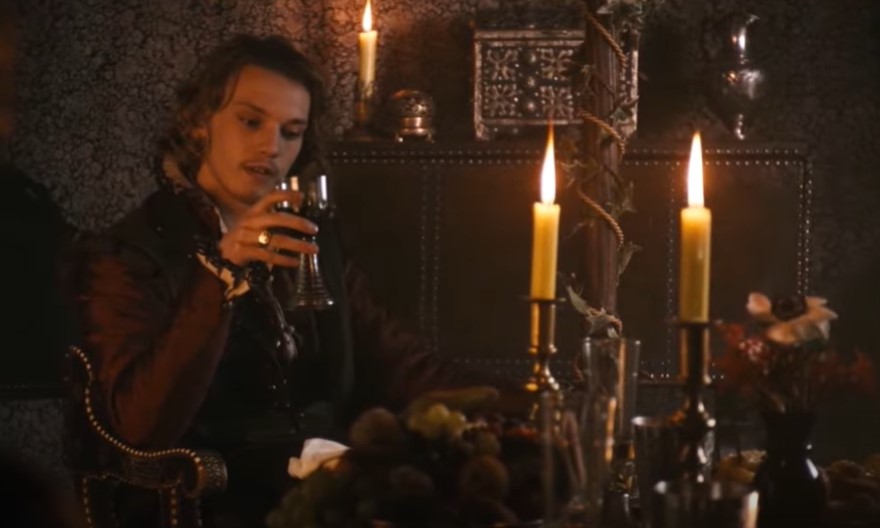 Anonymous (2011), Columbia Pictures
Anonymous (2011), Columbia Pictures
16. He Overplayed His Hand
What better way to prove your loyalty and sincerity in the face of crushing debt and suspicions about your allegiance? Why, a lavish vacation to the continent, of course. This time, the queen had had enough. She sent two of her men after Oxford, and when they caught up with him, they informed him he was to return to England at once or he’d be subject to punishment.
Once again, Oxford used his charm to get himself out of trouble. Before long, the queen was letting him travel again. But not everyone got the same taste of his good side.
 Anonymous (2011), Columbia Pictures
Anonymous (2011), Columbia Pictures

History's most fascinating stories and darkest secrets, delivered to your inbox daily.
17. She’d Loved Him For A Long Time
The Earl of Oxford had been part of the same household as Anne Cecil since she was just a little girl. Perhaps she’d even nurtured a teenaged crush on him—and now, they were married. For Cecil, it seemed like a dream come true. She did seem to genuinely love Oxford—but what began as a fairy tale soon turned into a horror story.
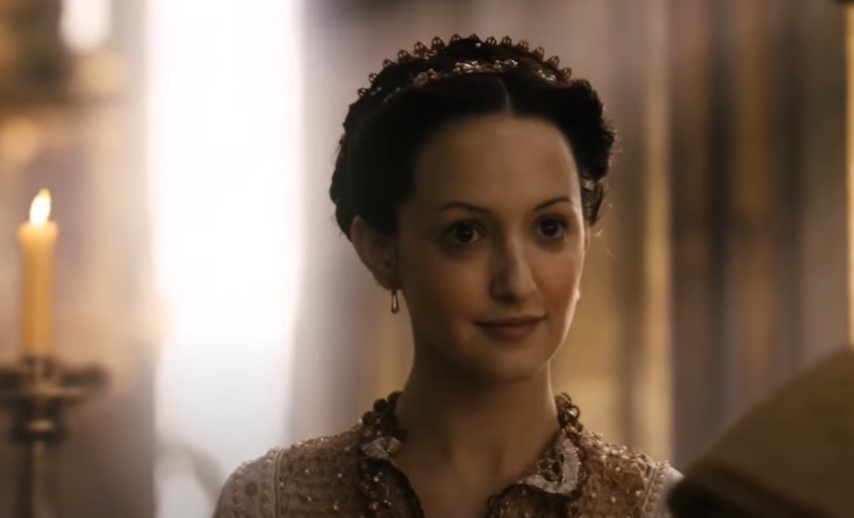 Anonymous (2011), Columbia Pictures
Anonymous (2011), Columbia Pictures
18. He Had His First Child
Soon after the Earl of Oxford set out for another trip—this time, with the queen’s approval—he got exciting news from his young bride. She was pregnant. He celebrated his good fortune and sent her presents from his travels. Anne gave birth to a baby girl, Elizabeth, in July 1575. When she finally reached Oxford with the news, she expected a warm reply.
Instead, she was in for a devastating surprise.
 Anonymous (2011), Columbia Pictures
Anonymous (2011), Columbia Pictures
19. He Turned Against Her
The man who wrote back to Anne was not the same one that she’d married. Something had gone irrevocably wrong. All of a sudden, Oxford was claiming that she had cheated on him and the baby wasn’t his. And he wasn’t quiet about his suspicions either, creating shockwaves in the court. Anne was utterly heartbroken—and she wasn’t the only one.
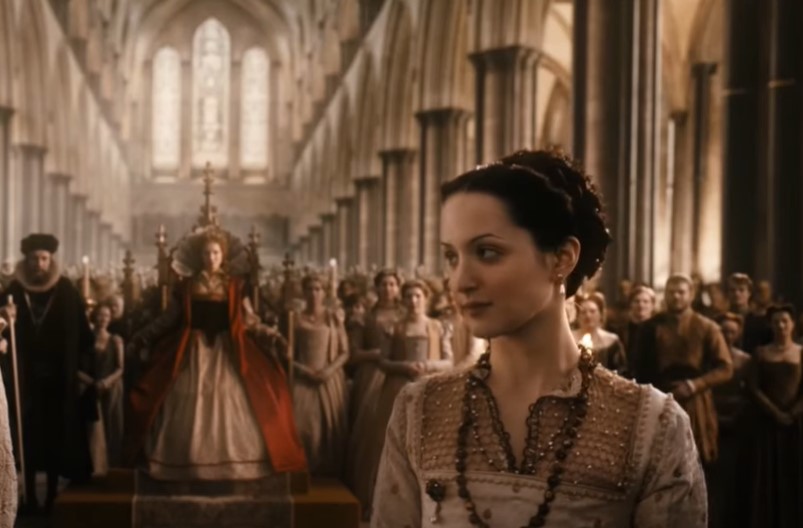 Anonymous (2011), Columbia Pictures
Anonymous (2011), Columbia Pictures
20. He Bit The Hand That Fed Him
Sir William Cecil had done everything for Edward de Vere. Cecil had raised him, tried to pay off his debts, and even given him his daughter’s hand in marriage. Now, Oxford had brutally betrayed him. And when Cecil protested, Oxford only doubled down. The Earl may have had a disturbing reason for his cruelty.
He didn’t think Cecil had done enough to save his cousin from execution, and was defaming his daughter to punish him. It was unfathomably cruel—and completely in character for the Earl of Oxford.
 Anonymous (2011), Columbia Pictures
Anonymous (2011), Columbia Pictures
21. He Finally Came Back
Betrayal or not, marriage or not; the Earl of Oxford and Sir William Cecil were inextricably linked. Cecil was an intermediary between Oxford and the queen, and Oxford used Cecil to take care of his business while he continued to gallivant around Europe. Of course, it wasn’t all fun and games. Pirates robbed Oxford blind as he made his way back home, and he barely escaped with his life.
That warm welcome was just about as amicable Oxford’s reunion with his estranged wife.
 Anonymous (2011), Columbia Pictures
Anonymous (2011), Columbia Pictures
22. He Was Stubborn As A Mule
When Oxford finally returned to England after 15 months away, he refused to live in the same home as his wife—and that wasn’t his only stipulation. Oxford then went to Queen Elizabeth and demanded that Anne not be allowed to attend court at the same time as him. He also requested that Anne’s father not be allowed to contact him regarding the matter anymore. Very mature.
What’s perhaps even more infuriating is that he got his way—heartlessly shunting Anne to the side and not seeing her or speaking to her for the next five years.

History's most fascinating stories and darkest secrets, delivered to your inbox daily.
23. He Was Living Dangerously
The Earl of Oxford was living in a house of cards that was sure to fall. He sold properties left and right, then made claims for others from the Crown, only to sell those as well and invest in expeditions for gold that only turned up ore. He’d use what charm he had to avoid the consequences of blunders like this. Most people in Oxford’s position would tread carefully—but not him.
 Anonymous (2011), Columbia Pictures
Anonymous (2011), Columbia Pictures
24. He Had The Audacity
On one of his many trips, Elizaeth I asked Edward de Vere for his help with a bit of diplomacy. The request was a tad bizarre. She was working with French ambassadors to arrange her potential marriage to a younger French duke. She asked the Earl of Oxford to dance for the ambassadors. Clearly, it was a deal that was pretty important to her. But Oxford, being the brat he was, said no—that he "would not give pleasure to Frenchmen".
Considering that he was scraping by on the back of the Queen’s good graces, it was not his smartest move.
25. He Was Immature
Maybe it was a form of penance, or maybe it was real—but either way, Oxford actually supported the Queen’s plans for marriage. This actually led to a petty and embarrassing fight between Oxford and another noble who was against her plan. It happened on a tennis court, right in front of the French ambassadors. The fight ended with one noble challenging the other to a duel—and the Queen was not pleased.
26. He Couldn’t Stop Poking The Bear
Though she initially took Oxford’s side in the whole debacle, she soon realized that he wouldn’t leave well enough alone—and she’d definitely told him to. When he wrote to his rival and challenged him to a duel again, Elizabeth decided she’d had enough. The punishment was extremely appropriate for the immaturity of the transgression.
She “grounded” Oxford, confining him to his chambers for a month. But this kind of scandal was nothing compared to the mess that Oxford walked right into next…
 Anonymous (2011), Columbia Pictures
Anonymous (2011), Columbia Pictures
27. He Really Stepped In It
When it came to quarrels, Edward de Vere wasn’t really a “pick on someone your own size” type. His position as Earl of Oxford gave him a lot of status, and he usually went up against those who had less. That way, he had an assured win—but in late 1580, when he accused a group of courtiers of treason, he got in way over his head.
 Anonymous (2011), Columbia Pictures
Anonymous (2011), Columbia Pictures
28. They Fought Back
The Privy Council had the courtiers in question—Charles Arundell, Francis Southwell, and Henry Howard—arrested. Though Oxford tried to turn Arundell against the others with promises of freedom, they had a trick up their sleeves. They came with a three-point plan. They would cop to lesser charges, expose his attempt to divide them—and most significantly of all, they had some charges of their own to raise.
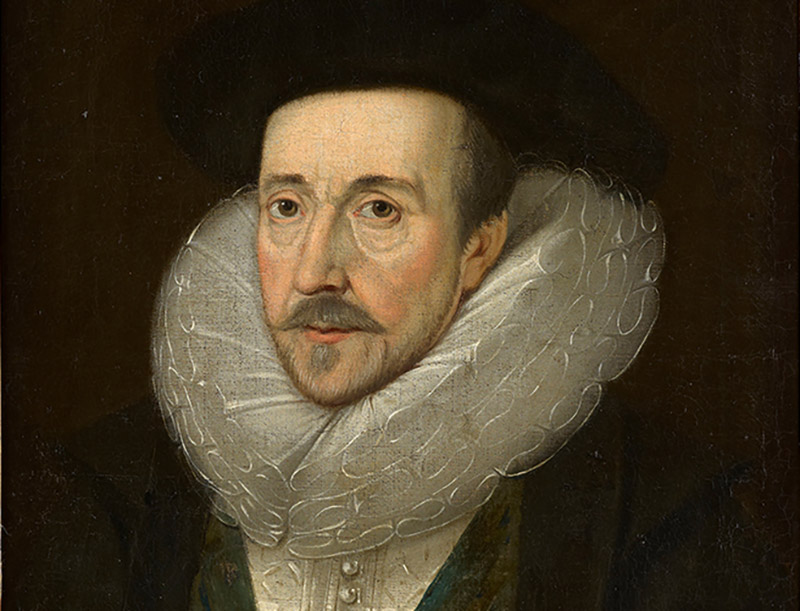 Wikipedia Henry Howard
Wikipedia Henry Howard

History's most fascinating stories and darkest secrets, delivered to your inbox daily.
29. He Had Some Bad Habits
Arundell, Southwell, and Howard went to the Privy Council with a number of allegations again the Earl of Oxford—and they ranged from trivial to downright disturbing. They included “atheism, lying, heresy, disobedience to the crown, treason, murder for hire, perversion, habitual drunkenness, vowing to murder various courtiers, and criticizing the Queen”.
One word: Yikes.
30. His Past Speaks For Itself
If the Earl had been born at any other time—like, let’s say during the reign of Henry VIII—he surely would’ve been investigated and punished. After all, the claims against him really seemed true. But Elizabeth was different. She was a lot less prone to drama (and more prone to inaction) than her predecessors. The men that Oxford had accused of treason fell out of court favor, but they were never indicted.
And as for Oxford? He was free to go about creating more trouble for everyone whose path he crossed.
 Anonymous (2011), Columbia Pictures
Anonymous (2011), Columbia Pictures
31. He Went Out Of The Frying Pan And Into The Fire
Edward de Vere jumped from one scandal to another like they were couches and the floor was lava. Soon after the allegations against him came out, he was involved in another controversy. Anne Vavasour, one of Queen Elizabeth’s ladies-in-waiting, gave birth to a son—and she claimed that he was the father. This time, he wouldn’t get out of it so easily.
32. His Sins Caught Up With Him
When the Earl of Oxford came up against accusations he’d fathered a child out of wedlock—and even worse, that he’d denied the child—the consequences were brutal. The authorities immediately took in the Earl of Oxford and sent him to the infamous Tower of London. Though they eventually released him to house arrest instead, his punishment wasn’t over yet.
33. He Schemed To Make Up For It
Though the Queen allowed Oxford to appear at one event that year, he was about to face his worst penalty yet. His ultimate sentence was a three-year banishment from court. Oxford, crafty as ever, not only tried his best to appeal—but also to rehab his image. And the best way to do that after an infidelity scandal? Why, go crawling back to your estranged wife, of course.
 Anonymous (2011), Columbia Pictures
Anonymous (2011), Columbia Pictures
34. He Got Into A Vicious Family Feud
After years apart, Edward de Vere finally reconciled with his estranged wife Anne Cecil and acknowledged their daughter Elizabeth. However, thanks to the Earl’s usual antics, their happy reunion was cut brutally short. He got into a fight with Anne’s uncle outside their home, and in the brawl, he was wounded and a servant was killed—but the nightmare didn’t end there.
The bad blood continued to boil between them, and a series of more and more violent brawls ensued, where each lost men. The timing could not have been worse…

History's most fascinating stories and darkest secrets, delivered to your inbox daily.
35. He Experienced Horrible Heartbreak
Sure, a touch of violence interrupted the Earl of Oxford’s reunion with his wife Anne, but that didn’t stop them from doing what married couples do. Nine months after their reconciliation, Anne became pregnant. In May of 1583, she gave birth to a son—but tragically, the boy passed on just hours later. The couple was devastated…but Oxford may have also seen an opportunity.
 Anonymous (2011), Columbia Pictures
Anonymous (2011), Columbia Pictures
36. He Wormed His Way Back In
Edward de Vere had been appealing his exile from court for months on end, and his father-in-law eventually joined him in his fight. Did sympathy for his grieving family play a part in his eventual return to court? It’s entirely possible, but either way, his exile ended after two years…with a promise of good behavior, of course. But as we know, that was rarely, if ever, a promise the Earl of Oxford could keep.
37. He Was In Dire Straits (Not The Band)
Whenever Oxford had a debt to pay—and he had plenty—he’d sell off one of his inherited properties. There was just one problem: those properties were supposed to be his main source of income. Actually, there was more than one problem. To make a long story short, he still had a lot of debt to the Queen from his time as a ward, and those properties were security for it.
He got out of it by having some purchasers promise to pay his debts—but his financial situation was worse than it had ever been before. And his relationship with the Queen wasn’t much better.
 Anonymous (2011), Columbia Pictures
Anonymous (2011), Columbia Pictures
38. She Used Him
After his exile, Edward de Vere’s position in Queen Elizabeth’s court never quite reached the status it had before—and it showed. King James VI of Scotland was coming to England in order to secure the release of his mother, and Elizabeth needed to send hostages to Scotland to ensure the King’s safe return. Oxford, of course, was at the top of the list.
While he’d once been a power player, he was now a literal pawn.
 Reign (2013–2017), CBS Television Studios
Reign (2013–2017), CBS Television Studios
39. He Redeemed Himself
Well, it turned out that shutting up and going along with the Queen’s wishes—quite out of character, after all—turned out to be a good thing for the Earl of Oxford, and he began to turn his dire financial situation around. He got a chunk of change from his father-in-law and a £1,000 annuity from Queen Elizabeth. Man, that lady had the patience of a saint…
40. He Lost His Wife
In the intervening years, Oxford and Anne Cecil had three more daughters. It was basically a miraculous turnaround from their five-year estrangement…but it wasn’t meant to last. In 1588, a fever took Anne’s life. It was a crushing loss—and one that her father, who supported Oxford financially, never fully recovered from. You couldn’t really say the same for Oxford, however.

History's most fascinating stories and darkest secrets, delivered to your inbox daily.
41. He Rebounded
Before long, the Earl of Oxford was wheeling and dealing with his land again—but this time, he had an ulterior motive. He sold one property to a man who happened to have an eligible sister named Elizabeth, a maid of honor to the Queen and a notable beauty. Within a year, they were wed, and the bliss didn’t stop there. Elizabeth gave birth to a son—Oxford’s first (legitimate) one—in early 1593. Did this mean Oxford was giving up the drama and settling down? Hardly.
 Anonymous (2011), Columbia Pictures
Anonymous (2011), Columbia Pictures
42. He Was Slipping
As Edward de Vere’s health began to fail, so did his ability to escape unscathed from sticky situations. In one instance, a servant undervalued the property Oxford was selling and bought it out from under him. His father-in-law passed on, leaving a significant amount to Oxford’s daughters—but with the provision that the Earl couldn’t touch it. It seemed like people were finally beating him at his own game.
 Anonymous (2011), Columbia Pictures
Anonymous (2011), Columbia Pictures
43. Their Fates Were Intertwined
Queen Elizabeth I had been a constant in Edward de Vere’s life for some 45 years. And that’s not to mention all the times she’d helped him out of scrapes and forgiven his transgressions. As his health failed, so did hers—but that didn’t stop him from playing a cruel game of thrones.
44. His Lost His Greatest Ally
In the final days of Elizabeth’s life, the Earl of Oxford began to speculate and scheme about a successor for her. Normally, these type of plots would garner some attention. Though officials knew about what he was doing, Oxford was so frail and old that they never even reported him. When the Queen did pass away, Oxford expressed his grief—yet he must have also been worried. After all, could her successor ever have the infinite patience for his antics that she had?
45. He Stumbled Into The King’s Good Graces
Well, it turned out that Edward de Vere had nothing to worry about. When King James VI of Scotland took the English throne, he immediately gave Oxford everything he’d been asking for from the crown, and the Earl even took part in the coronation. Unfortunately, it would be the last bit of glory he’d get to witness.
46. He Son Let Him Disappear
After years of failing health, Edward de Vere passed on June 18, 1604. Both Elizabeth and James had shown him favor, but no one provided any fanfare when the Earl was finally gone. And in death, he met one final indignity. His wife’s final wish was to be buried next to him—but their son, who became the 18th Earl of Oxford, never made it happen.
No one knows where the notorious, brash, and unforgettable Edward de Vere ended up. And that wasn’t the only mystery to haunt his legacy.
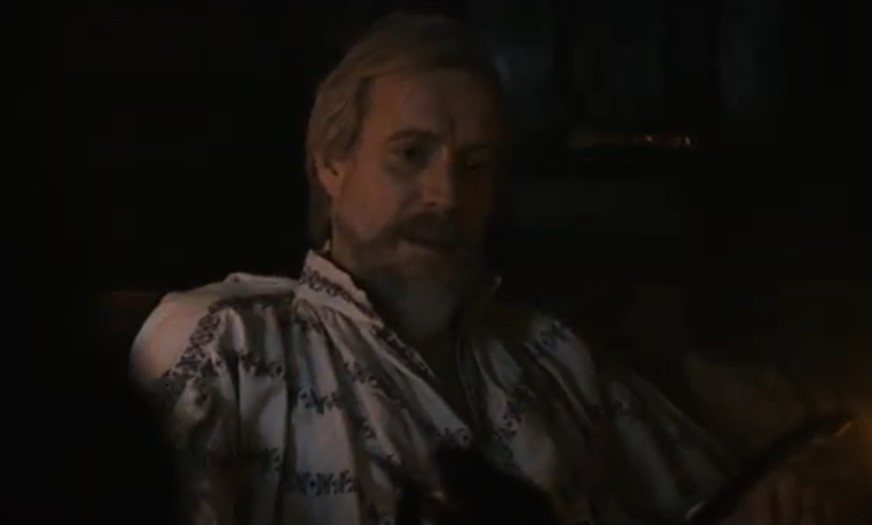 Anonymous (2011), Columbia Pictures
Anonymous (2011), Columbia Pictures

History's most fascinating stories and darkest secrets, delivered to your inbox daily.
47. He May Have Been Shakespeare
One of the many reasons Edward de Vere liquidated his properties was to become a literary patron—but he was also a notable playwright and poet in his own right. And his writing talent put him right at the center of a bizarre controversy. It led to some scholars speculating that he was the real author behind William Shakespeare’s plays and poems. Even Sigmund Freud supported the theory!
While there are actually a few alternative authorship theories, the one about the Earl is the most popular. And it’s not the only historical mystery he’s been part of.
48. He Might’ve Been The Father Of An Uncrowned King
They called Elizabeth I the “Virgin Queen” for a reason. She never married and never had children. Of course, this didn’t stop people from speculating about her private life during her life and after—and some historians came up with a theory about her and the Earl of Oxford. They actually suspect that they not only had a relationship, but also a secret love child.
No wonder she put up with all his drama! And it gets even weirder from there…
 Elizabeth: The Golden Age (2007), Universal Pictures
Elizabeth: The Golden Age (2007), Universal Pictures
49. Or Was He The Uncrowned King?
They speculated that Elizabeth, after giving birth, covered it up. She gave the child to another pregnant woman. Other historians put a twist on the theory and claimed that de Vere wasn’t Elizabeth’s lover—he was actually her illegitimate son, the product of an affair with Thomas Seymour, a man just as wild and scandalous as de Vere. That would certainly explain her favor—but that’s not even the most disturbing part.
50. He Was An Unforgettable Figure
This claim became known as the “Prince Tudor Theory Part II”—and the primary historian who came up with it made even more scandalous allegations. According to him, Elizabeth went on to have an incestuous relationship with Edward de Vere, her illegitimate son, with that affair producing another child. Then again, the same author claims that de Vere didn’t die when everyone said he did. He says someone abducted him—and that de Vere wrote not only The Tempest, but also the King James Bible.
As far-fetched as the story is—the 17th Earl of Oxford’s real-life adventures may actually have been more interesting on their own.
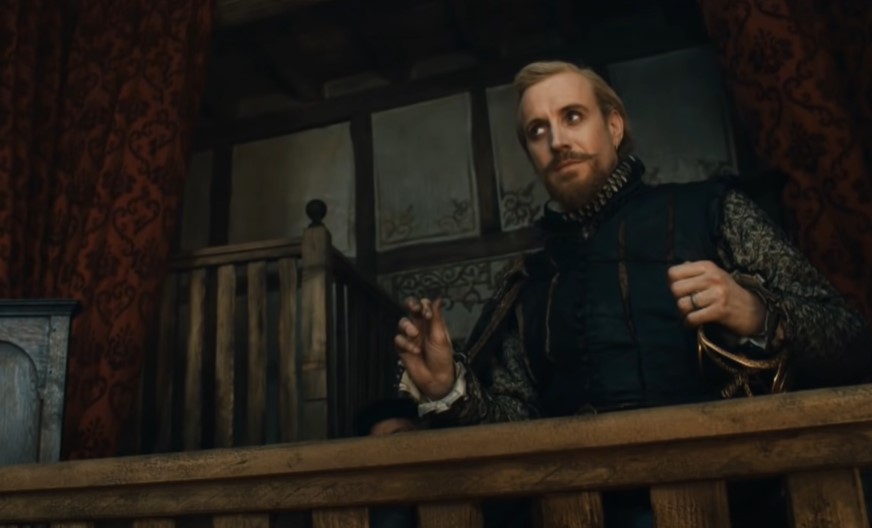 Anonymous (2011), Columbia Pictures
Anonymous (2011), Columbia Pictures

